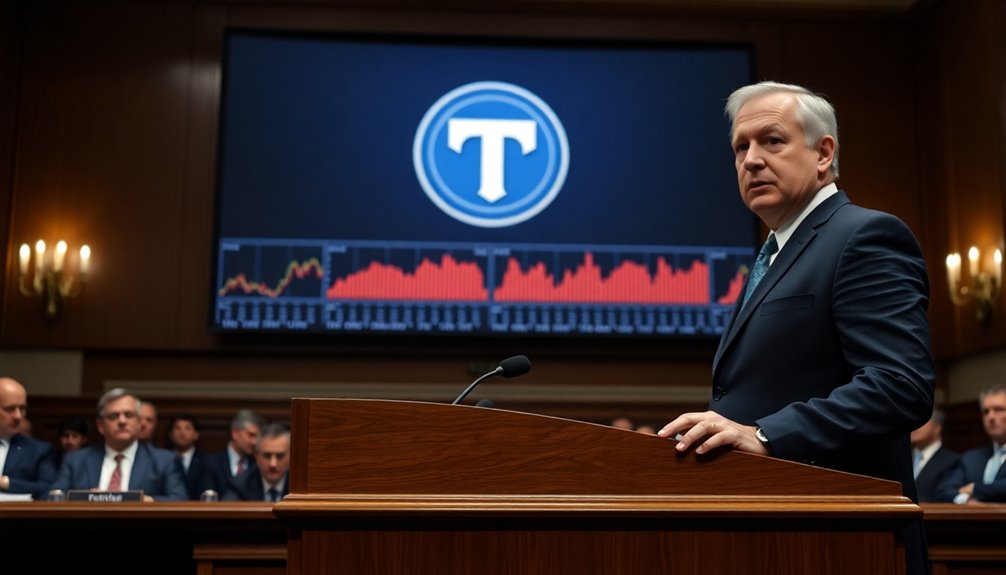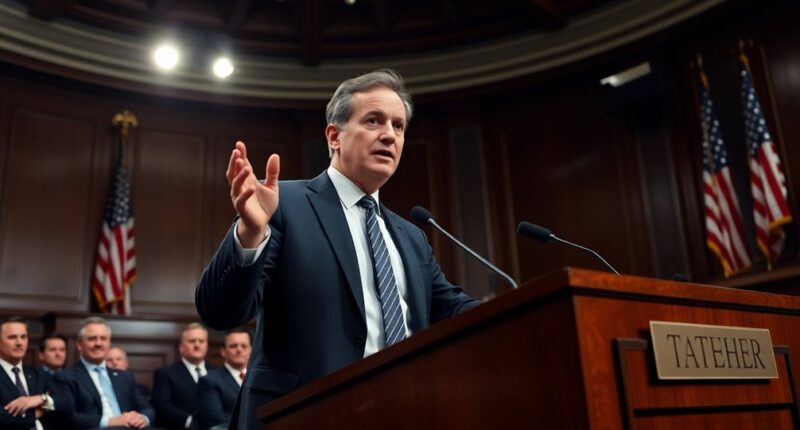In a recent Senate hearing, you might have caught Bitcoin advocate Howard Lutnick defending Tether amid growing concerns over its transparency. With senators like Elizabeth Warren probing into stablecoin regulations, Lutnick pushed for regular audits to ensure accountability. His emphasis on Tether's backing with US Treasuries raises questions about the future of stablecoins and regulatory frameworks. What implications could this have for the broader crypto market?

As scrutiny surrounding Tether intensifies, Howard Lutnick, a prominent Bitcoin advocate and CEO of Cantor Fitzgerald, steps forward to defend the stablecoin. You might know that Tether is the world's largest stablecoin, pegged to the US dollar, but it hasn't been without controversy. Allegations of insufficient backing and connections to criminal organizations have raised eyebrows, and Tether has faced investigations for potentially violating anti-money laundering rules.
With Cantor Fitzgerald managing Tether's reserves, which include US Treasuries, Lutnick's involvement is significant. During his recent confirmation hearing, Lutnick addressed concerns about his ties to Tether. Senators, including Elizabeth Warren, grilled him about the implications of his association with the stablecoin. Despite the scrutiny, Lutnick stood firm, stating that Tether complies with existing regulations.
He emphasized the importance of transparency and regulatory oversight in the stablecoin market, which has become increasingly vital in today's financial ecosystem. Lutnick advocates for regular audits of stablecoins to ensure accountability. Although Tether has promised audits since 2014, they've yet to deliver. You can see why this lack of transparency raises questions among regulators and the public alike.
Lutnick insists that backing stablecoins with US Treasuries can enhance their stability, further reinforcing trust in the system. He believes that such measures are crucial for building a secure financial environment for crypto assets. Moreover, Lutnick has proposed that artificial intelligence could play a role in combating blockchain-based crimes, indicating a forward-thinking approach to regulatory challenges. Bitcoin price noted at $105,251.33 during the hearing highlights the ongoing volatility in the cryptocurrency market.
His ideas aim to create a regulatory framework that protects consumers while fostering innovation in the crypto space. By emphasizing the need for oversight, he hopes to mitigate the risks associated with cryptocurrencies, including stablecoins like Tether.
As Lutnick's confirmation hearing unfolds, his proposals could significantly impact the regulatory landscape for the US crypto market. While Tether's past and controversies may haunt it, Lutnick's defense and advocacy for audits might pave the way toward greater acceptance and legitimacy in the eyes of regulators.
The future of stablecoins hinges on transparency and accountability, and as Lutnick champions these principles, you can expect the conversation around Tether to evolve.









